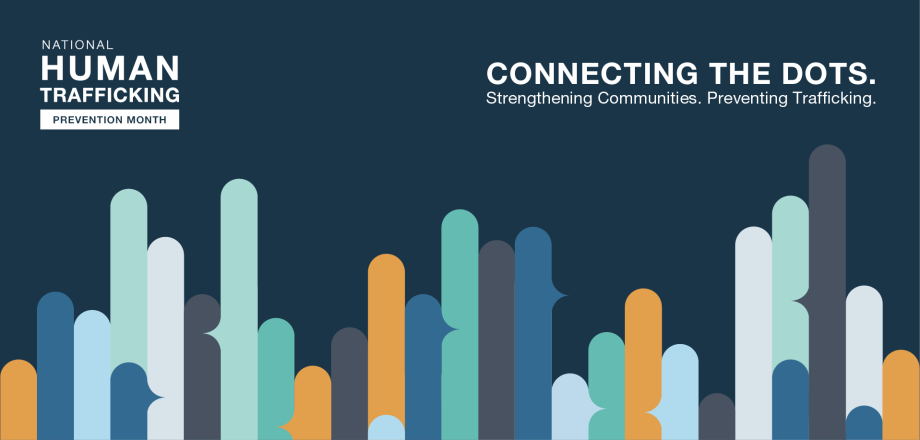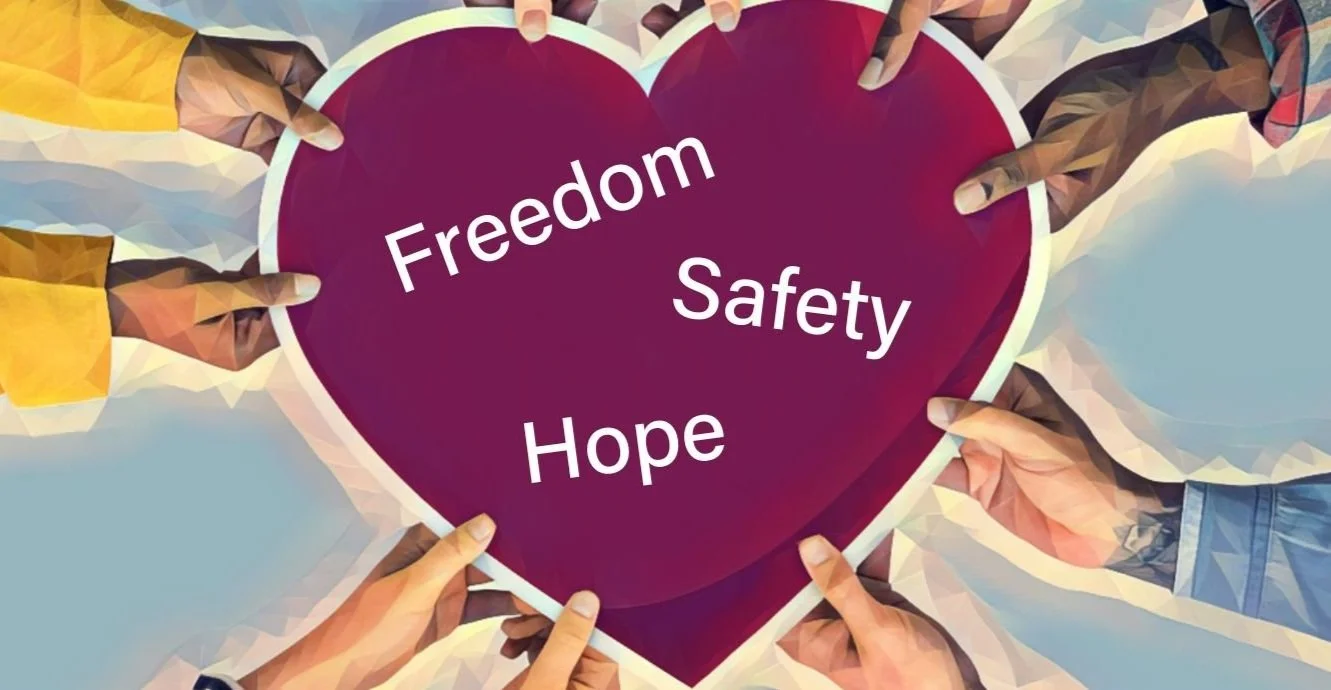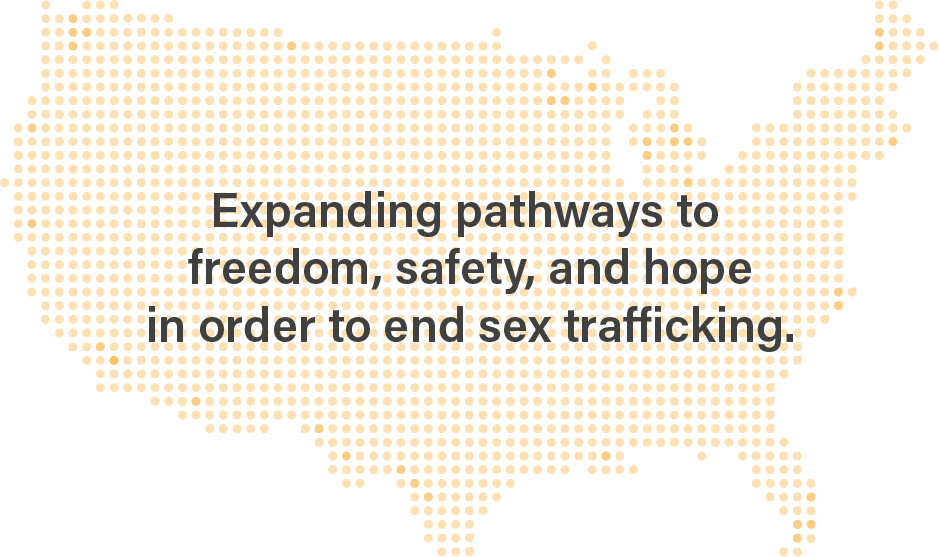We are excited to announce Elizabeth Hodges as REST's new CEO. With over 20 years of nonprofit leadership experience, Elizabeth is deeply committed to our mission of supporting survivors of sex trafficking. Her extensive background in strengthening communities facing social and economic barriers, along with her passion for empowering vulnerable populations, makes her the ideal leader for REST. Join us in welcoming Elizabeth as she leads us into this next chapter of growth and impact!
Announcing Linaya Bunbury as REST's New Interim CEO
We are excited to announce Linaya Bunbury as REST's interim CEO. With extensive nonprofit experience and as a former REST board member, Linaya is well-equipped to lead us through this transition. Her expertise in communications, strategic planning, and community engagement will strengthen our mission to support survivors of sex trafficking. Join us in welcoming Linaya Bunbury. We look forward to her leadership and positive impact!
Charting a Course for Change at REST
As Women's History Month concludes, we're thrilled to announce leadership changes reflecting our commitment to empowering survivors and ending sex trafficking. Audrey Baedke is now Director of Training and Partnerships, Yasminda Dorrough as Director of Survivor Services, and Lisa O'Dell as Director of Development. Together, they'll drive our mission forward, expanding our impact and ensuring survivors receive the support they need.
The Future of REST Part 2: Our Plan to Expand Pathways
What would it mean for REST to eradicate systems of harm, rather than merely treat symptoms of harmful systems? This was the question posed to us by LTHJ Global, a local DEI Consulting firm, who led us through an initiative to imbed diversity, equity, inclusion, and access throughout our culture and practices at REST in 2020-2021.
We spent several months last year, gathering feedback from stakeholders to inform our strategic plan. We interviewed survivors, REST clients, other service providers, community partners, supporters, and national leaders in the anti-trafficking field. Our question: If we were going to end sex trafficking by 2040, what needs to happen? And what role should REST play?
It may not be realistic to end sex trafficking by 2040, and that’s okay. The question was meant to guide us toward the activities that would have the highest impact. Economic inequality & poverty emerged as the most significant system of oppression that contributes to sex trafficking. When asked what activities REST should contribute to disrupting or dismantling the system of economic inequality & poverty, respondents said, in this priority:
Survivor Services
Education
Awareness & Culture Change
Policy Advocacy
The strategic plan for REST mirrors these priorities and will guide our expansion in three ways over the next five years.
1. Going Multi-Site with Survivor Services
Everyone is worthy of love and deserves to live a life without exploitation. This underlying belief continues to fuel everything we do at REST, so direct service work with victims and survivors of sex trafficking will remain core to our work. We also believe that services with survivors are a strategic way to help end sex trafficking. A group of survivors who recover from trafficking and use their voice and experience to advocate for policy change and influence culture can significantly propel the effort to end sex trafficking in the United States.
Based on a decade of gathering feedback from survivors who have accessed services at REST, we have confidence in the impact of our service model and will prioritize investing in services that consistently deliver the greatest long-term impact. We will also identify another city (or two) within the United States to replicate our service model and demonstrate that positive outcomes are not geographically dependent. This will not only give us the opportunity to serve more survivors in places where there is the greatest need, but it will also set REST up to have greater influence with policymakers.
2. Launching a Training & Technical Assistance Division
In 2023 we plan to launch a training and technical assistance program to build capacity with other direct service providers across the country. We envision providing training and consultation with 100 providers over the next five years, multiplying our impact by strengthening the teams who are providing critical services and partnering with them to enhance their work with survivors. Two features of our curriculum include Motivational Interviewing Informed Wraparound (MiiWrap), an evidence-based approach to care, and a uniquely designed Impact Management process that supports continuous improvement and highlights the long-term impacts of services.
This won’t be an entirely new activity for us, as we’ve frequently mentored and walked alongside other nonprofits to share promising practices and learn from their expertise as well. In fact, we currently get multiple requests each week for training and consultation. With this new division, we will build dedicated resources and staff so we can say yes.
3. Building Strategic Partnerships for High Impact Projects
The final pillar in our plan, which is estimated to launch in 2-3 years, is to expand strategic partnerships, focusing on developing and supporting national initiatives that will help end sex trafficking. Through this effort, we hope to work with new and existing partners to implement unique projects that are likely to contribute to the end of sex trafficking. This may include technology projects, like TIRA (an app we developed with volunteers from Microsoft and UW), policy advocacy initiatives, working with influencers to accelerate awareness of human trafficking, and driving culture change through marketing and media campaigns.
The litmus test for any partnership or any activity we engage in is this: will it contribute to the end of sex trafficking?
Here’s a visual of our strategic plan framework as we move forward.
We want to give a special thanks to The Jensen Project who provided REST with a grant to fund our strategic planning process, and Stacey Pearson, with the Paterson Center, who led REST leadership through a three-day StratOp process, which enabled us to formulate this 5-year strategic plan. We are grateful and excited for the future of REST.
The Future of REST Part 1: A Change to our Mission Statement
The work of REST began on the streets of Seattle, building relationships with people involved in the sex trade, the majority of whom were being trafficked. In theory, we had a simple objective: build trust, ask what they need, and make sure they get it. And if we discovered that what they needed didn’t exist or didn’t work, we committed to building it. In practice, we learned that very few services were designed to meet the needs of survivors of trafficking and failed to accommodate for the, often, years of complex trauma they’ve endured.
We ended up building. A lot.
Thirteen years later, we’ve built one of the largest continuum of services designed by and dedicated for victims and survivors of sex trafficking in the United States. Over 600 individuals engage with REST each year, and more than 400 of them enroll in one or more of our services like emergency shelter, community-based advocacy, behavioral health, economic empowerment, transitional housing, or permanent housing. Our impact measurement model enables us to implement continuous improvement within our services and ensure survivors have the greatest opportunity to recover from trafficking and achieve their goals.
We successfully advanced our founding mission to provide pathways to freedom, safety, and hope for victims of sex trafficking and people involved in the sex trade.
Given our history of successful growth, it might surprise you then to know that we embarked on a strategic planning initiative to ask ourselves if we were doing the right things. We wanted to consider our way forward in light of a community-first approach to nonprofit leadership, in which we believe that a nonprofit exists to eradicate systems of harm, rather than merely treat symptoms of harmful systems. This is not a new approach for us, but it was helpful to step back and ask if we were still on the right path and operating with an obvious long-term objective for the organization. This led us to unanimously simplify and embolden our mission statement, which now reads:
REST exists to expand pathways to freedom, safety, and hope in order to end sex trafficking.
Did you feel a little spark ignite in your spirit? We feel it too!
There are three important changes we want to highlight:
We changed the word “provide” to “expand” in order to emphasize a multiplying effect as we work with partners and other organizations around the country to expand pathways to freedom, safety, and hope.
We removed specific language about the “who” we provide pathways for in order to create space for strategic activities that we believe will contribute to the end of sex trafficking but are not specifically direct service efforts.
We added a clear, bold, and long-term aim for REST: to end sex trafficking. This will act as a litmus test for all of our work as we move forward and multiply our impact. We must be certain that our services, our partnerships, and our projects contribute to the end of sex trafficking.
The important things will stay the same.
We will continue providing direct services with survivors as our core work, and our Statement of Faith and organizational values will carry us forward. Our underlying belief that everyone is worthy of love and deserves to live a life without exploitation continues to be the heartbeat of REST and will guide us in how we expand pathways to freedom, safety, and hope in order to end sex trafficking.
Huge thanks to everyone who helped inform the future of REST!
Thank you to Lindsey T.H. Jackson, Founder and CEO of DEI Consulting Firm, LTHJ Global, Inc, who led REST through a 9-month initiative to embed diversity, equity, and inclusion throughout the organization. It was Lindsey’s guidance about community-first nonprofits that reminded us of our roots and launched us into a strategic planning initiative.
Thank you to the dozens of survivors, employees, partners, donors, and community members who weighed in via interviews, focus groups, and surveys to share their recommendations for the future of REST.
Thank you to Janet Jensen with The Jensen Project, for providing REST Leadership with a grant to participate in a STRATOP process to clarify our purpose and build out our strategic plan.
Thank you to all of those who lifted REST up in prayer as we considered our path forward.
Coming up next: The Future of REST Part 2: Expanding Pathways. The next blog in our series will highlight our newly adopted five-year strategic plan and how we hope to multiply our impact.








